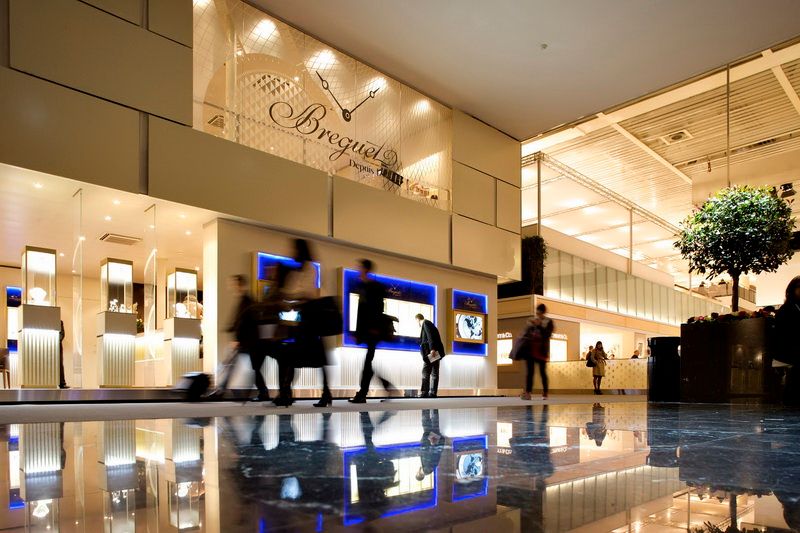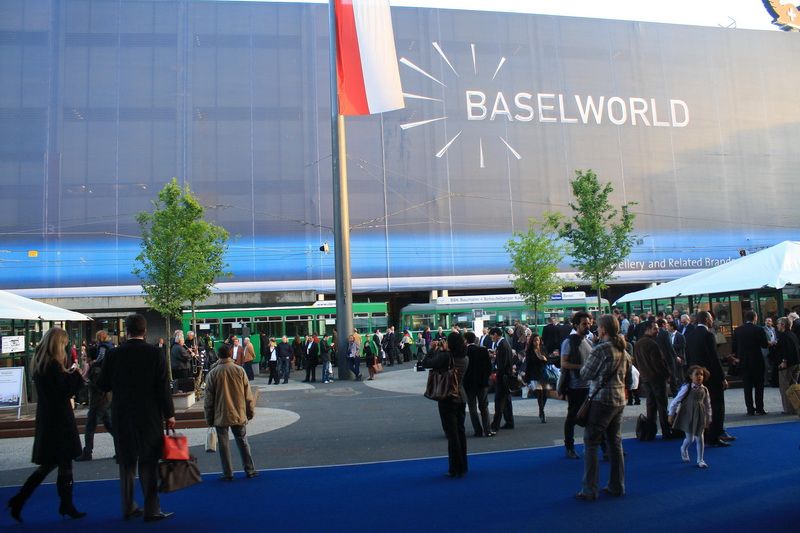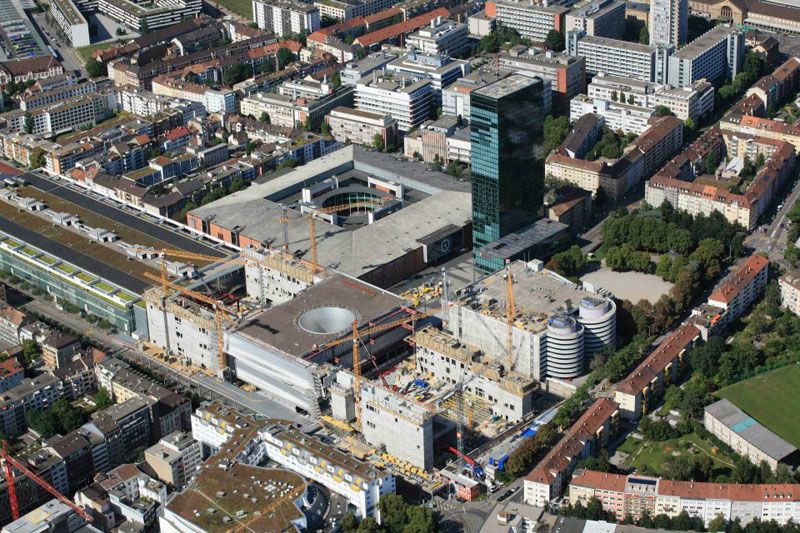Baselworld 2013 – Bigger, Badder and more Bodacious

In 2013, everything is bigger in Basel. From April 25 to May 2 of next year, the watch industry will gather at the center of its universe: Basel, Switzerland. This is when and where all the latest innovations will be shown, and visitors will be able to hold the newest models and walk past an encyclopedia of brands – all in a new expanded facility to house the excess.
Baselworld is the horological cornucopia where too much is never enough. Marc A. Hayek, responsible for the top tier brands of the Swatch Group (Blancpain, Breguet and Jaquet Droz): “It is my favorite week of the year, I would say. I think it really is for all of the industry, and that is what I like about Basel.”

Baselworld started out as an inauspicious watch inclusion at the 1917 Schweizer Mustermesse Basel (MUBA). It was not until 1931 that the Schweizer Uhrenmesse (Swiss Watch Show) found its own pavilion, and in 1999, watch Hall 1 opened, which accommodated three story stands. In 2013, Hall 1 will be completely renovated and modernized; Hall 3 across the street demolished and rebuilt into a three-story complex; and these two buildings will link together. 141,000 square meters is the result of the complete makeover, giving the horological community its first Colossus. With an investment of approximately 430 million Swiss francs ($460 million US), it is a new era.
Why is Baselworld important? Baselworld is the premier marquee for unveiling the unprecedented. This has always been the case. It was at Baselworld 1969 that the world first saw the production models featuring the world’s first automatic chronograph movement, the Caliber 11. Under the cover of secrecy, Breitling, Heuer, Büren (later Hamilton) and Dubois Dépraz collaborated to develop what would become the modern chronograph as we reported previously.
Gérald Dubois was the genius to pair a chronograph module with the Büren base movement that contained an off-center micro-rotor. Dubois’ modular design allowed the automatic and chronographic functions to coexist in one case, giving the world multiple models from Breitling, Heuer and Hamilton. Basel Fair, as it was then known, displayed the legendary Breitling Chronomatic, Heuer Monaco and Heuer Autavia. Following the March 3 announcement of the Caliber 11 Chronomatic movement, Basel was the stage for the world’s introduction to the new production models of the Caliber 11 chronographs.
It happened first in Basel, then and now. 2012 saw Tag Heuer push the envelope of speed with the Mikrogirder 10000, Rolex revealed the Sky-Dweller, and the alchemists at Hublot introduced the Big Bang Chrono Magic Gold. What might 2013 reveal?

Baselworld, or officially “Baselworld: the Watch and Jewelry Show”, is theater on a grand scale. Despite an economic recession, watch sales have continued to grow, and Baselworld forges ahead. Burgeoning markets like China and bellwethers like the United States combine with a truly global bazaar to produce recession-proof numbers. The Federation of the Swiss Watch Industry FH reports, “With exports totaling nearly 19.3 billion francs in 2011, Swiss watch manufacturers exceeded their previous annual result by 19.2%. The difference compared to 2010 amounted to 3.1 billion francs”.
The world’s horological appetite remains unabated in 2012, and a larger, growing market coupled with robust sales now has a bigger Baselworld. Construction, however, made for an early show last year and will occasion a very late 2013 show. Costs per square meter for brands will go up, and smaller brands may fear obscure placement within the maze. Still, the show must go on.

Shakespeare performed his plays at the Globe theater, but now the globe comes to theater Baselworld. Such a large audience deserves a grand venue. Baselworld shares that the most important parts of the project, developed by the famous architects Herzog & de Meuron of Basel, are:
- an extension of Hall 1 with three exhibition floors (ground floor and two upper floors) replacing the existing “head-end structure”;
- hall complex with three exhibition floors (ground floor and two upper floors) replacing today’s Hall 3, with a multi-functional “event hall” situated in the ground floor as replacement for the large reception hall in today’s “head-end structure”;
- a connection of the new hall complexes 1 and 3 by a two-story superstructure over the Exhibition Square (two upper floors) creating an open ground area with two separate entrances to the new hall complexes and available (as “City Lounge”) for various other uses.
Baselworld 2013 Construction
Break a leg in 2013!
This article is written by Max Reddick, contributing writer for Monochrome Watches.




1 response
Superb intro and teaser to one of the most important watch faires in the world.